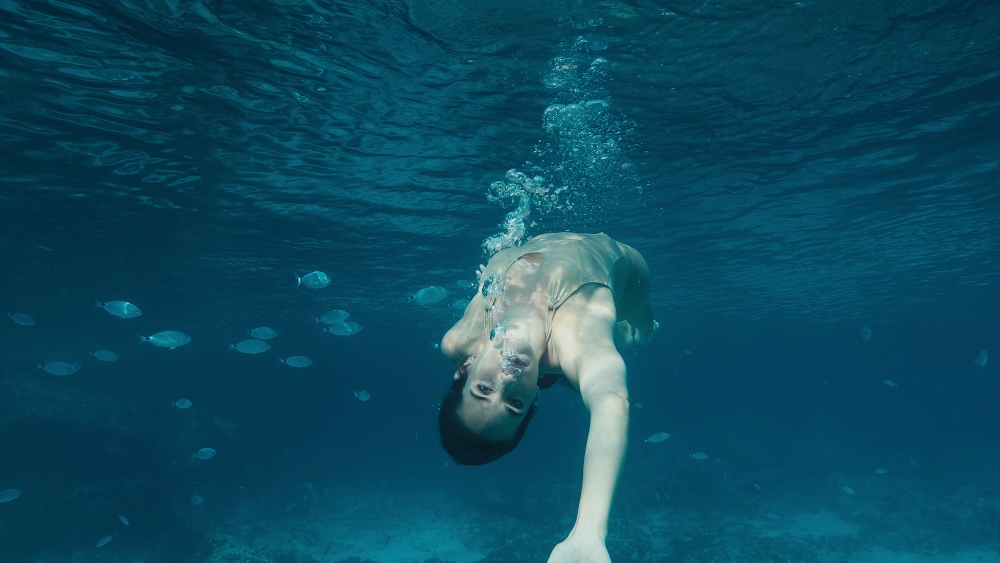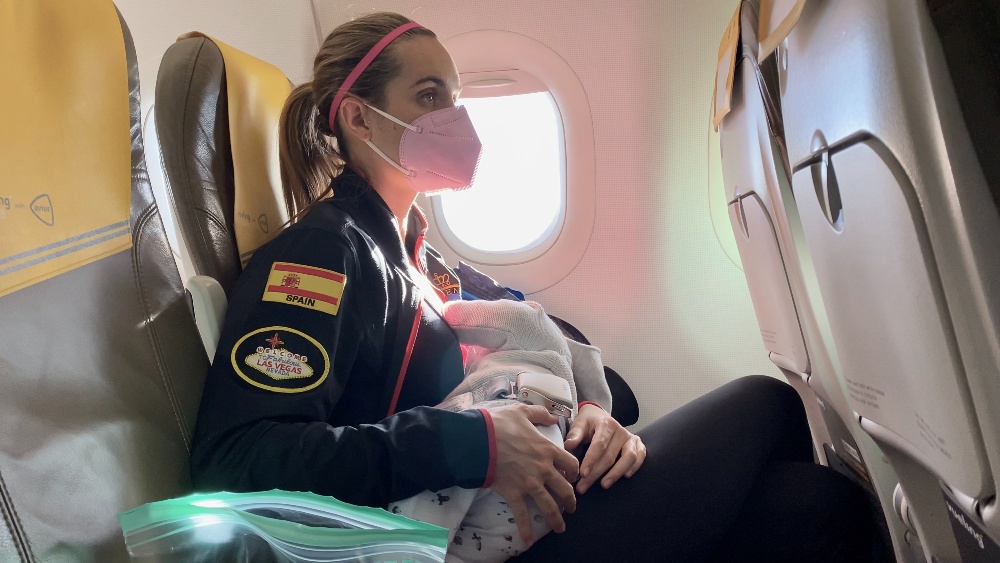
Olympian Ona Carbonell started training for the Tokyo Games just weeks after giving birth to her son and the artistic swimmer had to pair gym and pool sessions with breastfeeding and spending time with her newborn.
The 31-year-old is the focus in a new Rakuten TV documentary called Ona Carbonell: Starting Over and although she previously wanted to keep her private life out of the spotlight, she wanted to highlight what she went through to other women.
Covid-19 restrictions meant she couldn’t take her family with her to Japan when she competed at the Olympics so she couldn’t spend time with her son on his first birthday, but she has no regrets about making the decision to go to the tournament.
Carbonell spoke to Female First and explained why she wanted to take part in the documentary, spoke about her hopes of inspiring others and revealed some very exciting news.
How important was it for you to return to artistic swimming after giving birth?
Although it was a big challenge and I had to come back earlier than expected, it was very important for me to get back to work. When I saw that the games were postponed, I saw the opportunity to be able to achieve something that could give a lot of visibility to the problem of work-life balance that exists in sport today.
Why did you want to make the documentary?
My agent proposed it to me, he suggested I make a documentary. At first, I wasn’t sure because I have always been very private about my personal life. I never wanted to show my private life on social media. Then, I realised that I could use my platform to show a situation which I think needs to change. I felt an obligation to tell my story and help other women.

You said you felt guilty at the beginning of the film about returning to training with a newborn child, do you think some of that guilt is due to society's toxic view that mothers should only focus on their new-borns?
This may have had an influence, but there is no denying that newborns need the attention of their mothers, especially in the beginning. If you decide to breastfeed, the baby needs to eat several times, but luckily my partner is a great father and Kai has always been very well cared for.
What would you say to new and expectant mothers who want to balance their work and family life but worry that it is too much and overwhelming?
I would tell them not to be afraid. They may feel overwhelmed at times, but it is all worth it. I would tell them to lean on their families and their environment and to fight for their goals.
Do you expect people to find inspiration in your story?
Yes, I hope that many women, especially sportswomen who want to be mothers but are afraid to because they think they have to choose between motherhood and their profession, will find inspiration in the documentary. It is hard, but it is possible, and the more it is normalised, the more we will advance with regulations, help, etc.
Looking back, do you regret wanting to compete in the Tokyo Olympics?
I have no regrets. It was very hard to be separated from my son for so long, especially on his first birthday, but it was also very satisfying to experience my third Olympic Games with the team. Even knowing what I was going to feel, I would have done it. I think it was important to make visible the situation that exists with work-life balance in sport and I felt obliged to do it.
Congratulations on your pregnancy! Are you planning to go back to training after giving birth this time?
Thank you very much! We are happy and looking forward. I'm still training, but at a very relaxed level: two days a week and with a specific plan, to keep in shape and keep training to keep competing.
Words by Lucy Roberts for Female First, who you can follow on Twitter, @Lucy_Roberts_72.
Tagged in Olympics

